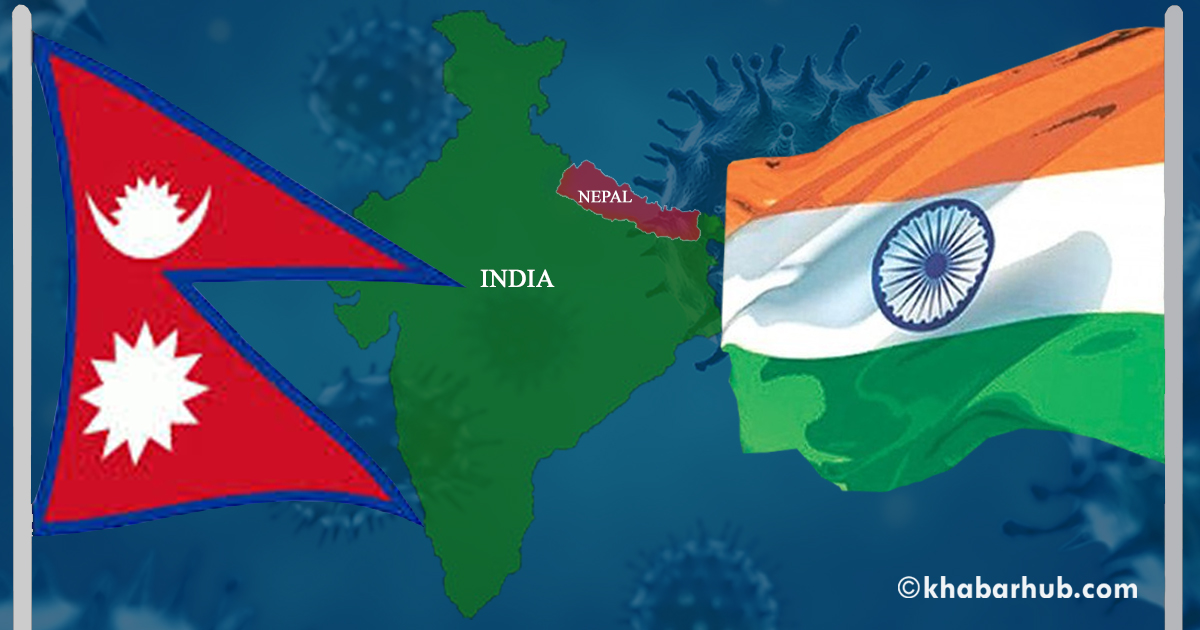India and Nepal share a very unique relationship and it is not only due to border sharing but there are many historical and cultural bonds. Whenever there is any disruption, either due to natural calamity or man-made, these two can be seen standing together.
This time in the crisis of COVID-19 pandemic, the support has been the same.
Both the nations share memberships at various forums such as SAARC, BBIN and BIMSTEC. When Indian Prime Minister Narendra Modi gave a call for the SAARC leaders to take steps forward and help each other to tackle this pandemic on the basis of regional support, Nepal was among the few to make prompt response by welcoming the offer.
Prime Minister K P Oli personally lauded Prime Minister Modi for taking this initiative. India also initiated the fund with a voluntary contribution of $10 million and was followed by all other nations, including Nepal.
In India, the number of COVID-19 infected cases has crossed the mark of 20,000 with the death toll crossing 650. Whereas in Nepal, it is much restricted to 49 cases of infection with no deaths due to the coronavirus.
So far this is quite a big achievement for Nepal to restrict the number of infection cases.
Lockdown has created a lot of problems for the people who cross the border frequently for business purposes or many people have the families living on both sides.
Initially, India sent a rapid response team (RRT) to assist the health care workers and other officials who are fighting with this pandemic in Nepal.
India recently sent 23 tonnes of essential medicines including 8.5 lakh dosages of critical medicines, 2.5 lakh dosages of Paracetamol and 3.5 lakh dosages of Hydroxychloroquine.
These medicines are required in treating COVID-19 patients. India is the largest producer of Hydroxychloroquine and it is been helping the world by providing it to all at a very large scale.
India and Nepal share a common and porous border. There is no visa requirement to visit each other’s land. This lockdown has created a lot of problems for the people who cross the border frequently for business purposes or many people have the families living on both sides.
In an estimate, over 2 million Nepalese live and work in India — several of them daily wage workers. They have lost their jobs due to this unprecedented lockdown.
Now they want to go back to their homes. Borders are sealed and that is required to break the chain of coronavirus infection. The international flights have already been suspended from March 22.
People are risking their lives by crossing the borders illegally, walking through dense forests and rivers. The footbridge over the roaring Mahakali river that links the two nations have been sealed because of which hundreds of people from Nepal are stuck in Dharchula – an Indian border town in Uttarakhand.
Hunger is the key issue. Money has been spent, and finding work is not possible. They are accompanied by their children and family members, and it has become difficult for them to survive.
The good news, however, is Nepal, so far, has been able to control the spread of the virus in a much better way than it’s neighboring nations. However, what needs to be taken seriously is once it will be out of control the situation can be fatal.
There are a lot of Nepali students who study in India, and are not able to go back to their country. With educational institutions shut down, students are facing food crisis as well as accommodation. However, various efforts have been made from the government agencies that are working in this regard and providing them some relief.
India and Nepal are involved in numerous developmental projects such as power projects and connectivity. These projects have been halted due to this crisis.
The delay is exerting a huge monitory burden. This must be ensured that these should not be canceled as it will impact the lives of many people who were going to get the benefits from these projects after the competition.
Trade between both nations has been adversely affected. Around 98% of Nepal’s transit trade takes place through the borders that are closed and Nepal shares 65% trade with India out of its total trade.
Due to this crisis, trucks loaded with goods are waiting at both sides of the borders. Nepal also needs to take care that it shares border with China as well.
It should be noted that China’s Wuhan was the epicenter of this virus. Any infected person if crosses the border from China to Nepal can create a havoc-like situation in Nepal.
The good news, however, is Nepal, so far, has been able to control the spread of the virus in a much better way than it’s neighboring nations. However, what needs to be taken seriously is once it will be out of control the situation can be fatal.
After this crisis, both Nepal and India must come forward and listen to the plight of the workers, students, tourists, and other common people who have severely impacted due to this pandemic.
These people must be safely sent to their destinations. Both governments need to provide their jobs back and must ensure their livelihood starts again.
The trade loss that has happened must be re-boosted. An example must be set up, how two neighboring nations can work towards a common good.
(The writer is a Research Analyst at The Kootneeti, New Delhi-based publication on International Relations & Diplomacy. His area of research includes Indian Foreign Policy and Peace & Conflict Studies)









Comment